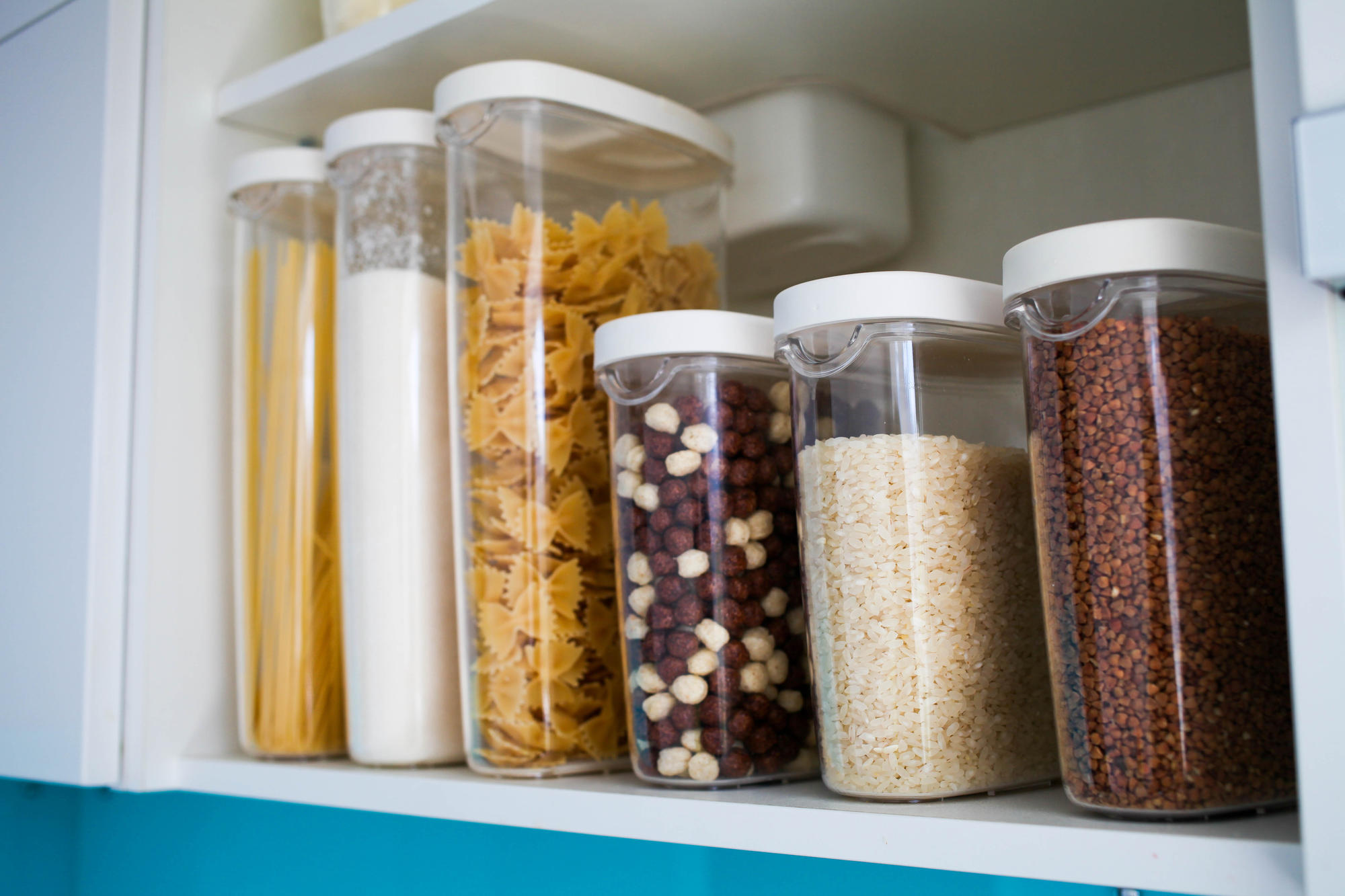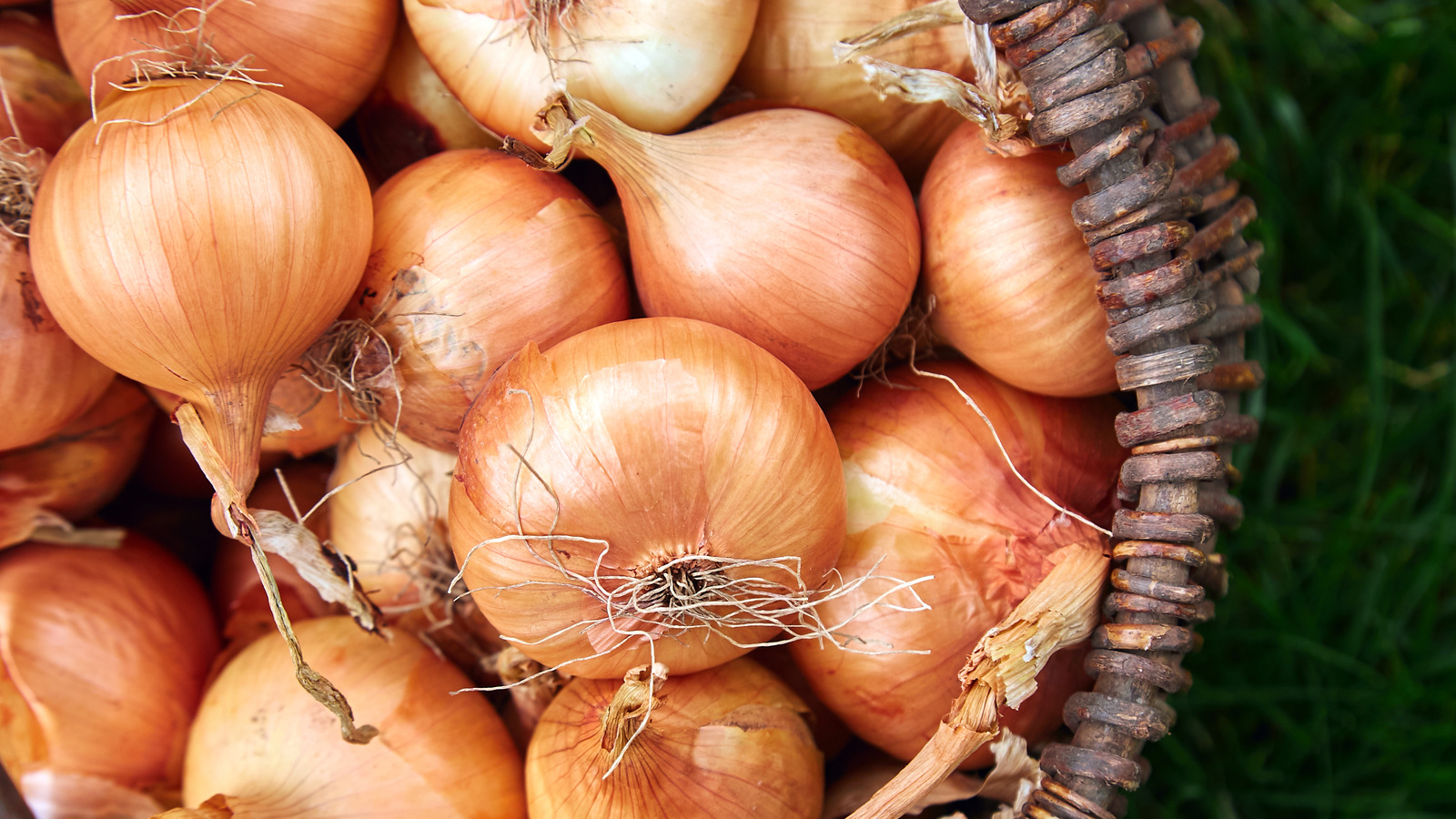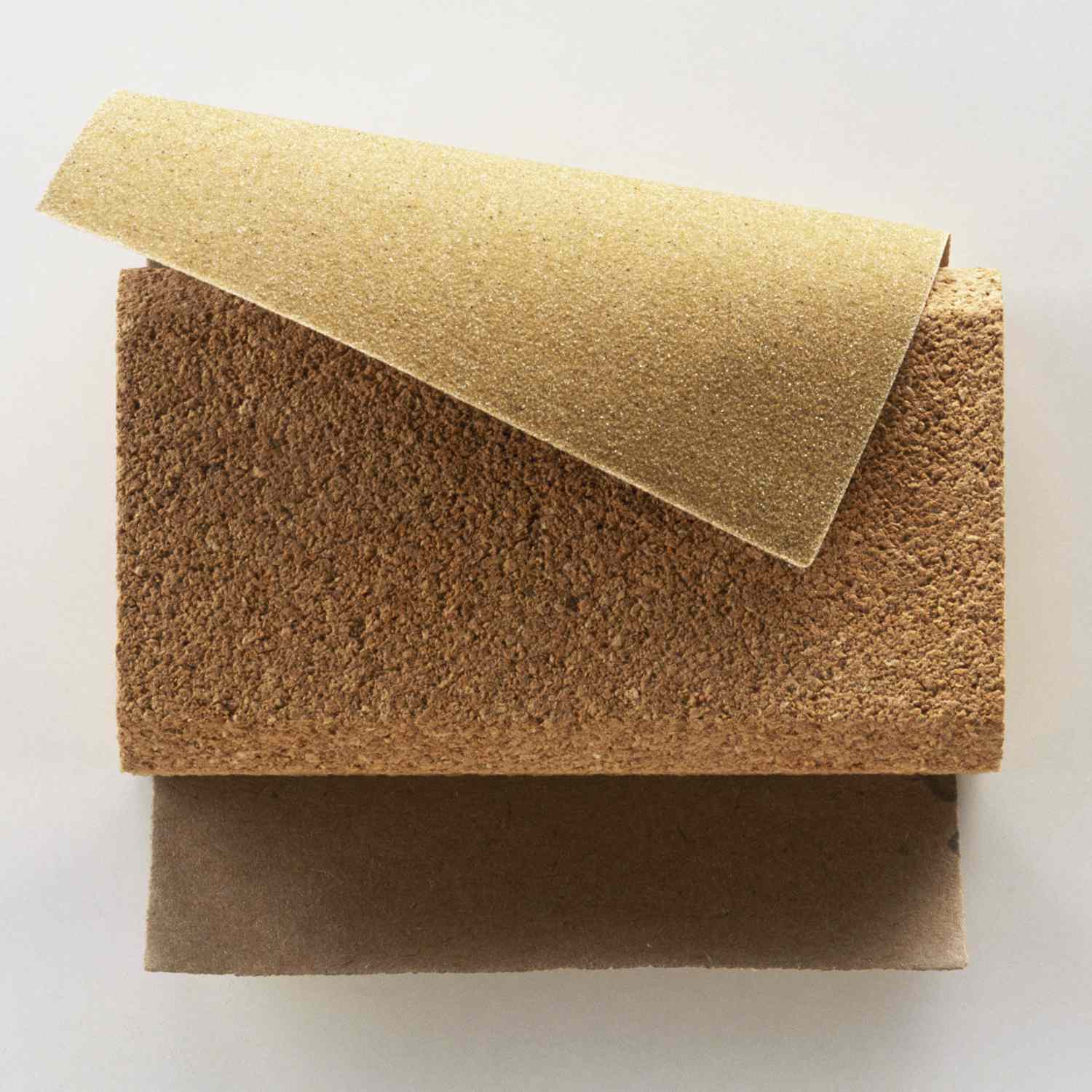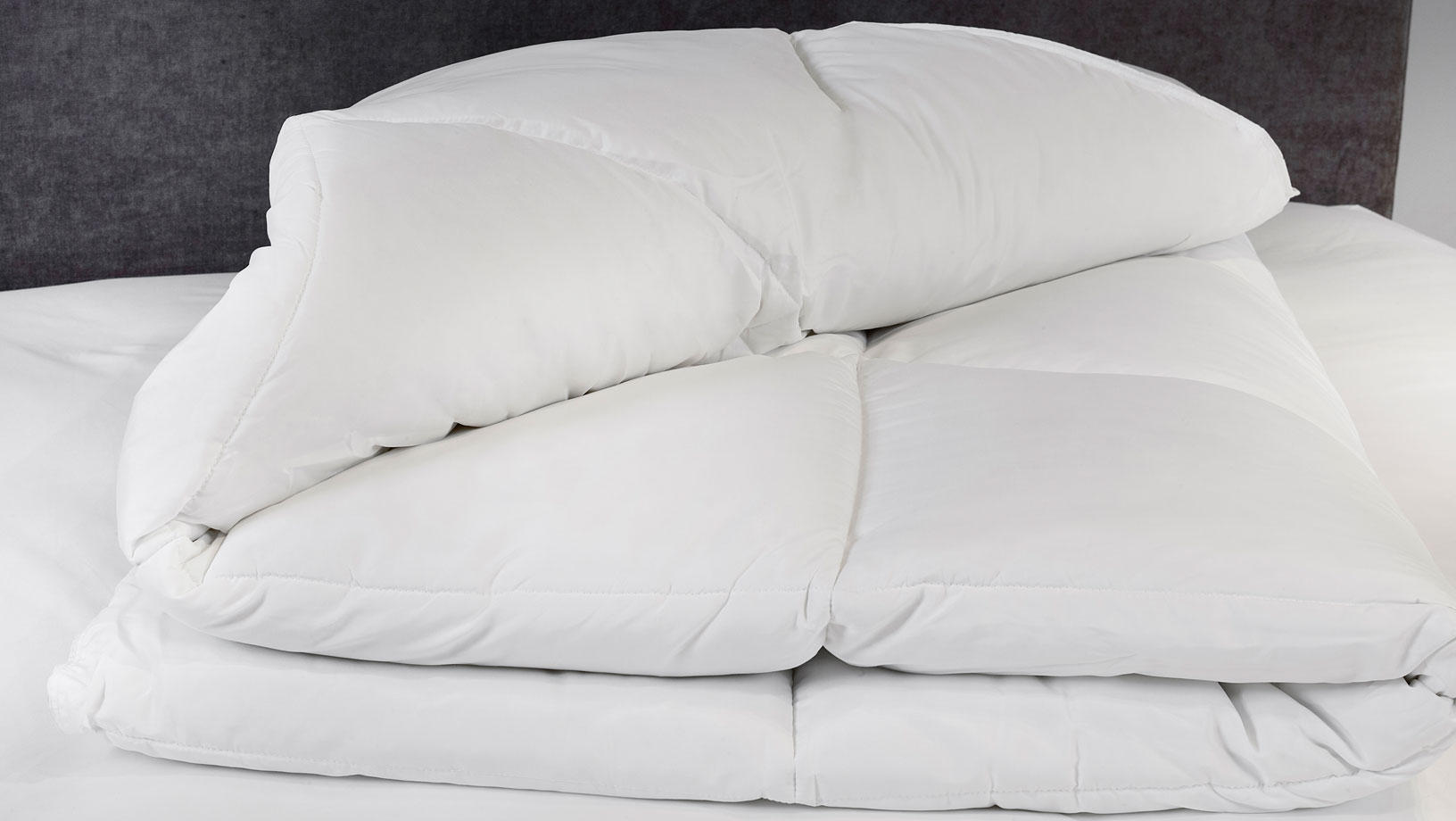

Articles
How Long Does Rice Last In Pantry
Modified: February 23, 2024
Discover how long rice can last when stored in the pantry. Learn about proper pantry storage techniques for maximizing the shelf life of your rice.
(Many of the links in this article redirect to a specific reviewed product. Your purchase of these products through affiliate links helps to generate commission for Storables.com, at no extra cost. Learn more)
Introduction
Welcome to the world of rice – a staple food in many cultures around the globe! Rice is a versatile grain that can be enjoyed in countless dishes, from sushi and stir-fries to rice pudding and biryani. But have you ever wondered how long rice can last in your pantry before it goes bad?
In this article, we will explore the factors that affect rice shelf life, provide tips on proper storage methods, and discuss the signs of rice spoilage. We will also answer the burning question: does rice ever expire? So, let’s dig in and uncover the secrets of rice longevity!
Key Takeaways:
- Proper storage in airtight containers, away from moisture and sunlight, can extend rice shelf life. Be mindful of signs of spoilage to ensure safe consumption.
- While rice doesn’t have a fixed expiration date, its quality can deteriorate over time. Rotate your rice supply and consume within a reasonable timeframe for the best taste and nutrition.
Read more: How Long Does A Rice Cooker Last
Factors Affecting Rice Shelf Life
Several factors can affect the shelf life of rice, determining how long it remains fresh and safe to consume. Understanding these factors is crucial for optimizing storage conditions and preserving the quality of your rice:
1. Variety
The variety of rice plays a role in its shelf life. White rice, for example, typically has a longer shelf life compared to brown rice due to the removal of the bran and germ layers, which contain oils that can turn rancid over time.
2. Moisture Content
Rice with higher moisture content is more prone to spoilage and the growth of molds, fungi, and bacteria. Therefore, it is important to ensure that the rice is stored in a dry environment to prevent moisture absorption.
3. Storage Conditions
The storage conditions, such as temperature and humidity, significantly impact rice shelf life. It is best to store rice in a cool, dry place, away from direct sunlight, as exposure to heat and light can accelerate deterioration.
Read more: How Long Does Coffee Last In Freezer
4. Packaging
The type of packaging can also affect rice shelf life. Rice stored in airtight containers or vacuum-sealed bags is better protected from moisture and oxygen, prolonging its freshness. Avoid storing rice in containers that are not tightly sealed or that may allow insects or pests to infest the rice.
5. Processing Methods
The processing methods used to mill and polish rice can affect its shelf life. Refined or polished rice has a longer shelf life compared to unpolished rice, as the milling process removes the outer layers of the grain, where oils and nutrients are more susceptible to degradation.
By considering these factors and implementing proper storage techniques, you can extend the shelf life of your rice and ensure that it remains safe and flavorful for an extended period of time.
How to Store Rice Properly
Proper storage is key to preserving the freshness and quality of rice. Here are some guidelines to help you store rice correctly:
1. Choose the Right Container:
Opt for airtight containers or resealable bags to store your rice. These containers will keep moisture and pests out, ensuring your rice stays fresh for longer. Glass jars, plastic containers with tight-fitting lids, or food-grade plastic bags are suitable options.
Read more: How Long Does Metal Roof Last
2. Keep It Cool and Dry:
Rice should be stored in a cool, dry place. Exposure to heat and humidity can lead to moisture absorption and spoilage. The ideal temperature for storing rice is below 70°F (21°C) with a humidity level of 15-20%. It is best to avoid storing rice near the stove, oven, or any other heat-emitting appliances.
3. Protect from Sunlight:
Keep your rice away from direct sunlight as it can degrade the quality and nutritional value of the grains. Store it in a dark pantry or cabinet to shield it from harmful UV rays.
4. Avoid Air Exposure:
Avoid leaving rice exposed to air for extended periods as it can cause the rice to become stale and prone to insect infestation. Always seal the container tightly after each use.
5. Do Not Store with Strong Odors:
Rice has the ability to absorb strong odors from its environment. To prevent your rice from acquiring unwanted smells, keep it away from potent-smelling substances such as spices, onions, and cleaning agents.
Read more: How Long Does A Composite Roof Last
6. Store in Small Portions:
It is advisable to store rice in small portions rather than in large quantities. This way, you only open and expose a small portion of rice to air at a time, reducing the risk of spoilage.
By following these storage tips, you can ensure that your rice remains fresh, flavorful, and ready to be cooked whenever you need it.
Signs of Rice Spoilage
While rice generally has a long shelf life, it is still important to be aware of the signs of spoilage. Here are some indicators that your rice may have gone bad:
1. Foul Odor:
If your rice smells musty, sour, or has a rancid odor, it is likely spoiled. Fresh rice should have a mild, neutral aroma. A strong and unpleasant smell is a clear sign that the rice has gone bad.
2. Discoloration:
Inspect the rice for any signs of discoloration, such as black or green spots. These discolorations can indicate the growth of molds or fungi. Fresh rice should have a uniformly white or light beige color.
Read more: How Long Does A Roof Last In Florida
3. Pests or Insects:
Presence of insects, bugs, or pests in your rice is a sure sign of spoilage. Check for any movement or traces of infestation, such as larvae or webs. These pests can contaminate the rice and render it unsafe to consume.
4. Texture Changes:
If the rice grains appear clumpy, excessively sticky, or have a slimy texture, it is a sign of spoilage. Fresh rice should have separate and fluffy grains when cooked.
5. Taste Test:
Although not always reliable, tasting a small portion of the cooked rice can help detect spoilage. If the rice tastes off, unpleasant, or has a strange flavor, it is best to discard it.
If you notice any of these signs, it is recommended to err on the side of caution and discard the rice. Consuming spoiled rice can lead to food poisoning and other health issues.
To prevent spoilage, always ensure proper storage conditions and use the “first in, first out” principle when cooking rice. This means using older rice before newer batches to minimize the chances of spoilage.
Does Rice Ever Expire?
Rice, unlike perishable foods, does not have a fixed expiration date. It is considered a non-perishable food item that can be stored for an extended period of time. However, the quality and freshness of rice can deteriorate over time, impacting its taste, texture, and nutritional value.
Rice can potentially become inedible due to spoilage, contamination, or insect infestation. The shelf life of rice depends on various factors including the type of rice, storage conditions, and processing methods. While rice can last for years if stored properly, it is important to understand the guidelines for optimal shelf life.
White rice, which has been refined and has its outer layers removed, typically has a longer shelf life compared to brown rice. This is because the bran and germ layers in brown rice contain oils that can turn rancid over time, affecting both taste and quality.
Proper storage plays a vital role in preserving rice. Storing rice in a cool, dry place and ensuring it is protected from moisture, sunlight, air exposure, and pests can significantly extend its shelf life. Investing in airtight containers or bags and storing rice in small portions can help prevent spoilage.
While rice might not have an expiration date, it is advisable to use your own judgment and senses to determine if it is still safe to consume. If the rice shows signs of spoilage such as a foul odor, discoloration, pests, or unusual texture, it is best to discard it.
It’s worth noting that the nutritional content of rice can diminish over time. Rice is a good source of carbohydrates and nutrients such as vitamins and minerals. However, these nutrients may gradually degrade with prolonged storage, ultimately affecting the overall nutritional value of the rice.
To ensure the best quality and taste, it is recommended to rotate your rice supply and consume it within a reasonable timeframe. By practicing proper storage methods and being mindful of any signs of spoilage, you can enjoy rice that is both safe to eat and delicious.
Read more: How Long Does A Thatch Roof Last
Conclusion
Rice is a versatile and nutritious staple food enjoyed by many people worldwide. Understanding how to properly store rice is essential to preserve its freshness, flavor, and overall quality. By considering factors such as variety, moisture content, storage conditions, packaging, and processing methods, you can extend the shelf life of your rice and minimize the risk of spoilage.
Choosing the right container, keeping rice cool and dry, protecting it from sunlight and air exposure, and avoiding strong odors are key steps in maintaining the quality of your rice. Additionally, storing rice in small portions and being mindful of signs of spoilage, such as foul odor, discoloration, pests, or unusual texture, will help ensure that you consume rice that is still safe to eat.
While rice doesn’t have a fixed expiration date, its freshness and nutritional value may gradually diminish over time. Therefore, it is advisable to rotate your rice supply and consume it within a reasonable timeframe to enjoy the best quality and taste.
Remember, rice is a valuable food resource, so it’s important to store it properly to avoid any wastage. With proper storage techniques, you can enjoy delicious, safe, and nutritious rice for an extended period of time.
So, whether you prefer white rice or brown rice, short-grain or long-grain, armed with the knowledge of how to store rice properly, you can confidently stock up on this versatile grain and incorporate it into your favorite dishes with peace of mind.
Frequently Asked Questions about How Long Does Rice Last In Pantry
Was this page helpful?
At Storables.com, we guarantee accurate and reliable information. Our content, validated by Expert Board Contributors, is crafted following stringent Editorial Policies. We're committed to providing you with well-researched, expert-backed insights for all your informational needs.











0 thoughts on “How Long Does Rice Last In Pantry”